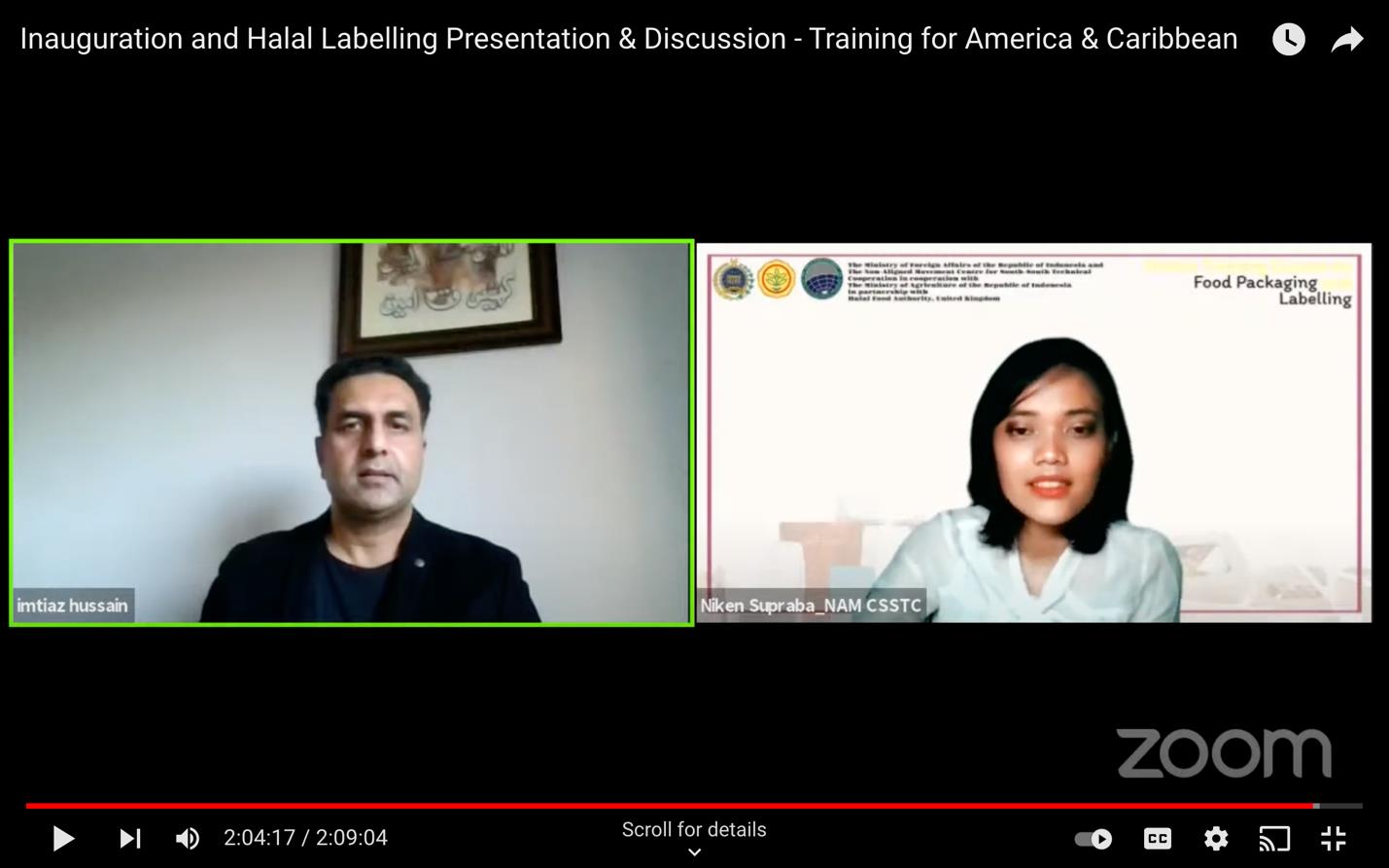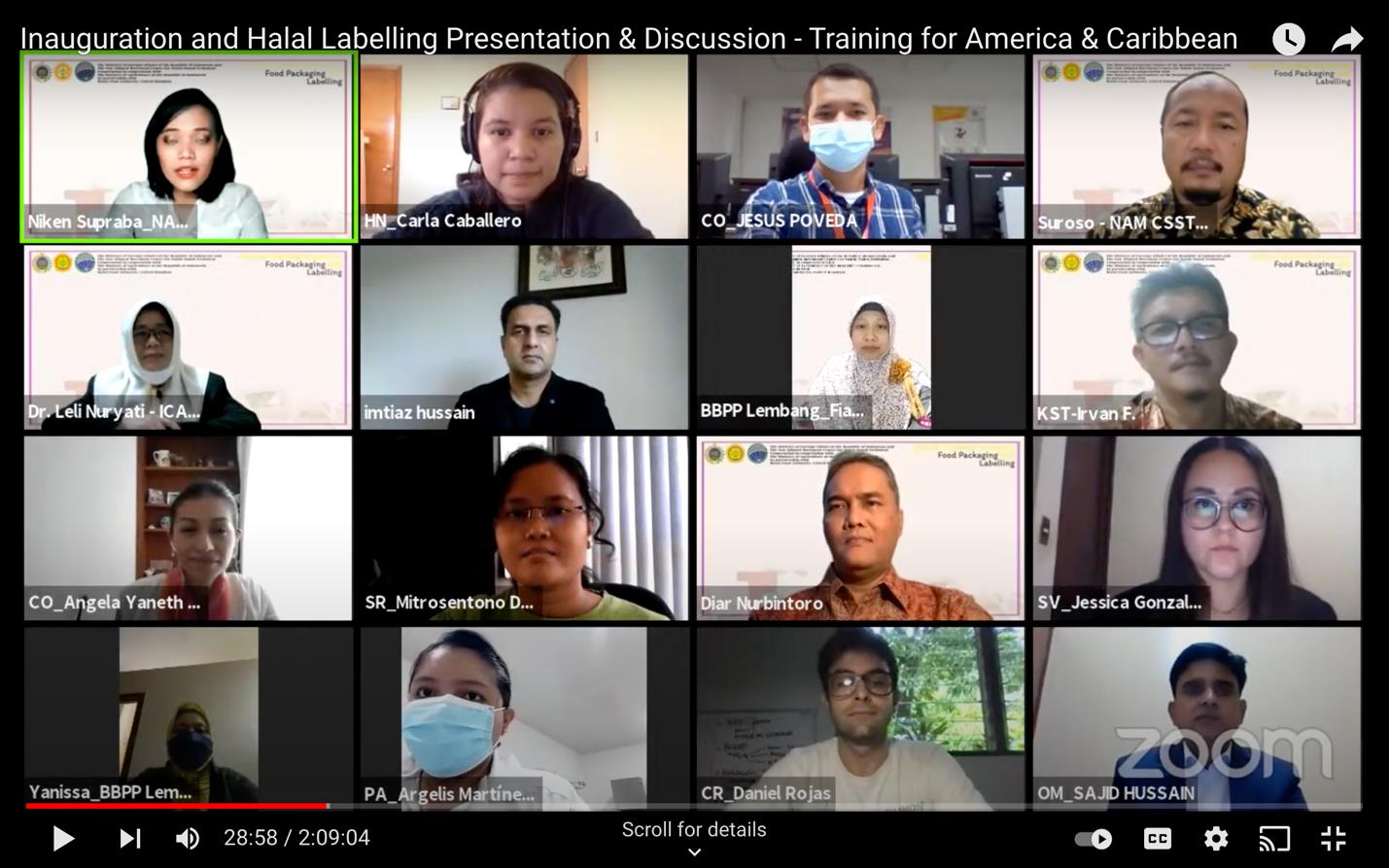 Online Training on Food Packaging and Labelling for African, Latin American and Caribbean Countries
Strengthening South-South and triangular cooperation in the agricultural sector
Online Training on Food Packaging and Labelling for African, Latin American and Caribbean Countries
Strengthening South-South and triangular cooperation in the agricultural sector

Challenges
The food needs of growing global populations mean that there is a higher demand for food production. Agricultural packaging is needed for farmers and agricultural producers to deliver food to consumers. Packaging protects food products from microbial contamination and water and air infiltration. Labelling also plays an important role as it informs the consumer about the product’s ingredients and nutrition.
The use of appropriate packaging technology is an important factor for horticultural products that are categorized as perishable goods. They are generally easily contaminated by bacteria, sunlight and odors. For this reason, it is necessary to ensure physical protection, barriers, nutritional and sensory characteristics and composition or grouping in the packaging to maintain quality while providing added value. Packaging and labeling of products must be carefully managed. It should be harmonized with international standards, which aim to protect consumer health. Some developing countries experience difficulties in accessing information and training needed for agricultural product packaging and labelling.
Towards a Solution
To address the above challenge, the Non-Aligned Movement Centre for South-South Technical Cooperation (NAM CSSTC) collaborated with the Government of Indonesia to organize training related to food labelling and food packaging. This is part of a series of training sessions supported by Indonesia to develop agricultural sectors in other developing countries using a South-South cooperation modality.
Experts from the Ministry of Agriculture of Indonesia teamed up with the Halal Food Authority of the United Kingdom to deliver virtual training sessions to 27 beneficiaries in 15 countries around the world (Belize, Burundi, Colombia, Costa Rica, El Salvador, Ethiopia, Gambia, Honduras, Kenya, Madagascar, Nicaragua, Panama, Rwanda, Suriname, the United Republic of Tanzania). Participants included government officials, farmers, business owners and education institutions. Using e-learning techniques, training materials were provided, and discussions held, with Q&A sessions.
Through the training, the participants received guidance on: (i) increasing competitiveness through packaging and labeling; (ii) basic knowledge of packaging types and designs for small- and medium-sized enterprises; (iii) halal food packaging and labeling; (iv) requirements regarding food labeling; and (v) design using an open-source application.
Packaging should consider brand selection to facilitate identification from other similar products, as a means of promotion, and increase consumer confidence. Attractive packaging design is very important in marketing efforts, considering the characteristics (for vegetables and fruits), packaging classification (disposable, multistrip, and semi-disposable) and levels (primary, secondary and tertiary).
The training introduced international regulations regarding food labeling and gave participants new perspectives on how goods produced by small- and medium-sized businesses can be export oriented. The training provided examples of graphic design through software applications, focusing on form and content of packaging, product information, legal aspects including copyright issues and selection of packaging materials to serve the purpose of marketing the products. The ‘smart intelligence packaging’ method was introduced which is economical but environmentally friendly. This method will help with competitiveness during marketing and is a sustainable practice.
One module covered halal certification of products. The module discussed how to increase consumer confidence by specifying the composition of the ingredients, including appropriate packaging, and which ingredients fall under the halal category as determined by the Halal Authority. The halal certification module was deemed useful as halal products are not yet a popular topic in Africa or South America and the Caribbean.
Through this training, participants gained the packaging and labelling knowledge for the purpose of marketing agriculture products which can be implemented in their own countries. In the end, to the training should boost the agricultural productivity and incomes of small-scale food producers and provide opportunities for value addition and non-farm employment, as targeted by SDG 2.3. Furthermore, the partnership between the Indonesia and NAM CSSTC is in line with the concept of global partnerships for sustainable development, complemented by multi-stakeholder partnerships that mobilize and share knowledge, expertise, technology and financial resources to support the achievement of the sustainable development goals in all countries, in particular developing countries, as targeted by SDG 17.16.
As the training took place during the Covid-19 pandemic, this training was conducted online using e-learning and video materials and participants interacted online with the trainers. Although the virtual nature of the training was out of necessity, it was realized that online training is in fact environmentally friendly and cost effective, allowing even greater geographical reach for participation, and thus may be a long-term solution for training and sharing across nations and regions.
The training is considered relatively easily replicable and could be extended widely through online, hybrid or full offline settings.
Contact Information
Countries involved
Supported by
Implementing Entities
Project Status
Project Period
URL of the practice
Primary SDG
Primary SDG Targets
Secondary SDGs
Secondary SDG Targets
Similar Solutions
| NAME OF SOLUTION | Countries | SDG | Project Status | |
|---|---|---|---|---|
100% Online Electronic Apostille and Legalization Sharing Colombia’s effective e-government system with other countries in the region |
Belize, Burundi, Colombia, Costa Rica, El Salvador, Ethiopia, Gambia (Republic of The), Honduras, Indonesia, Kenya, Madagascar, Nicaragua, Panama, Rwanda, Suriname, United Republic of Tanzania | 16 - Peace and Justice Strong Institutions | Completed | View Details |
A Billion Brains: Smarter Children, Healthier Economies High Level Meeting on South-South Cooperation for Child Rights |
Belize, Burundi, Colombia, Costa Rica, El Salvador, Ethiopia, Gambia (Republic of The), Honduras, Indonesia, Kenya, Madagascar, Nicaragua, Panama, Rwanda, Suriname, United Republic of Tanzania | 17 - Partnerships for the Goals | Completed | View Details |
Accelerator Labs Network Following collective intelligence methods to address emerging sustainability challenges and the growing demand for local solutions |
Belize, Burundi, Colombia, Costa Rica, El Salvador, Ethiopia, Gambia (Republic of The), Honduras, Indonesia, Kenya, Madagascar, Nicaragua, Panama, Rwanda, Suriname, United Republic of Tanzania | 08 - Decent Work and Economic Growth 13 - Climate Action | Ongoing | View Details |
Accessibility of Financial Services and the Private Sector in Africa Maximizing the impact of financial cooperation on economic development and industrialization in Africa |
Belize, Burundi, Colombia, Costa Rica, El Salvador, Ethiopia, Gambia (Republic of The), Honduras, Indonesia, Kenya, Madagascar, Nicaragua, Panama, Rwanda, Suriname, United Republic of Tanzania | 08 - Decent Work and Economic Growth | Completed | View Details |
Accessible Digital Textbooks Promoting inclusive education through Accessible Digital Textbooks |
Belize, Burundi, Colombia, Costa Rica, El Salvador, Ethiopia, Gambia (Republic of The), Honduras, Indonesia, Kenya, Madagascar, Nicaragua, Panama, Rwanda, Suriname, United Republic of Tanzania | 10 - Reduced Inequalities | Completed | View Details |

